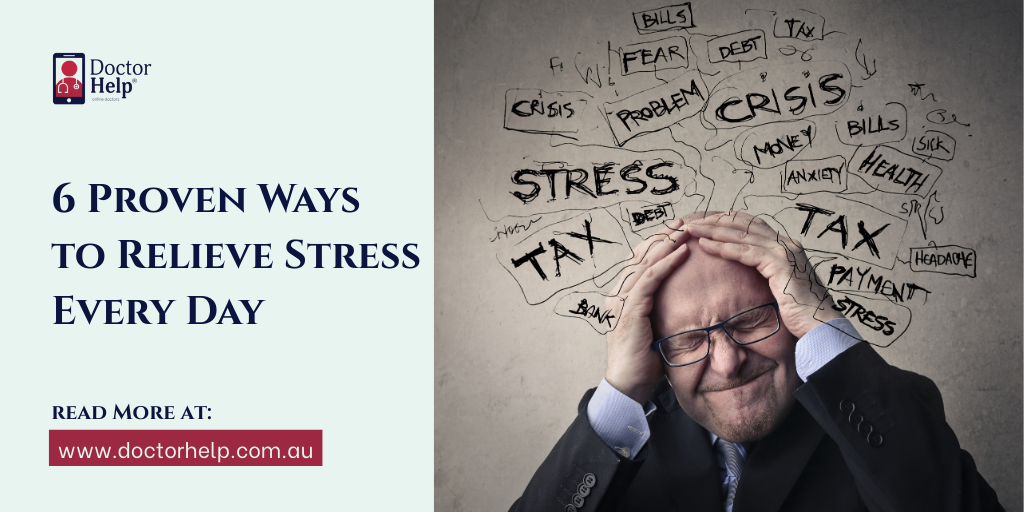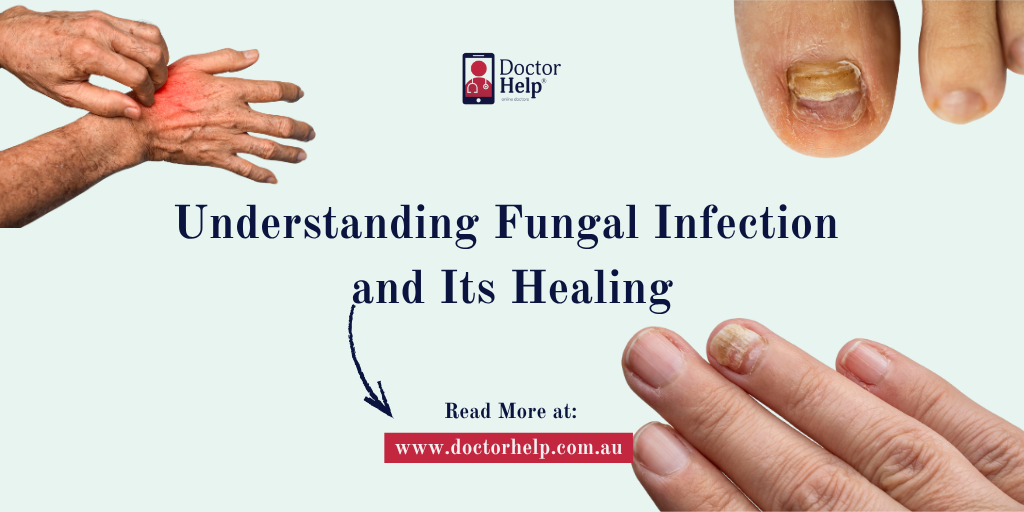Table of Contents
Stress does not knock and come in. It manifests itself at the center of the night when your mind cannot stop thinking, or during the middle of the working day when your chest is tight and you paste a smile on your face to make it look like you are okay. It does not bother how strong or effective you are, it still manages to find the cracks.
The good news here, however, is that we cannot prevent stress from visiting us, but we always have the choice of the amount of space we give it in our lives. And that is where stress relief daily habits come in. So, let’s sit with this together. Let’s talk about how to relieve stress in ways that feel doable, compassionate, and real. Not grand gestures, not once-a-year wellness retreats, but small, steady things you can fold into your everyday rhythm. Habits that actually work.
Stress Management: Why It Matters More Than You Think
Some people shrug and say, “Stress is just part of life.” And yes, they’re right but only up to a point. Healthdirect Australia makes it clear that chronic stress doesn’t just leave you feeling frazzled. It chips away at your health. High blood pressure. Weakened immunity. Even depression.
Think of stress like a leaky tap. A few drips don’t matter. Leave it running day and night, though, and suddenly the water bill’s through the roof and the house is damp. Stress management isn’t a luxury; it’s maintenance. Without it, things slowly fall apart.
Read: Managing Stress and Anxiety: 5 Simple Tips for Better Mental Health
How to Relieve Stress
Here are 6 ways to relieve stress:
1. Starting Small: Morning Meditation
Picture this: instead of diving straight into emails, you sit quietly for ten minutes. No phone. No rush. Just you and your breath. That’s morning meditation in its simplest form. It’s not about becoming a monk or emptying your mind completely (good luck with that). It’s about giving yourself a quiet space before the day starts barking its orders.
Research shows mindfulness reduces anxiety and strengthens emotional resilience. But beyond the studies, here’s the lived truth: starting your day grounded is like putting your shoes on before walking across gravel. Life’s still bumpy, but you don’t feel it as sharply.
2. Exercise for Stress Relief: Moving the Tension Out
Ever noticed how stress doesn’t just live in your head? It takes up residence in your body. Tight shoulders. A clenched jaw. That knot in your stomach that refuses to budge. Exercise is how you move that tension out instead of letting it fester.
It is recommended that adults should aim for 150 minutes a week, but honestly? Forget the numbers for a second. What matters is movement you actually enjoy. A jog at sunrise, yoga in your lounge, kicking a ball around with your kids.
Exercise for stress relief works because it doesn’t just distract you, it literally rewires your body chemistry. Endorphins kick in. Your muscles loosen. Problems shrink to a size you can manage. Sometimes the hardest part is lacing up your shoes. But once you start, the heaviness lifts a little.
Also read: 10 Benefits of Physical Activity for a Healthy Life
3. Food to Eat to Relieve Stress: Comfort with Purpose
When stress bites, many of us raid the pantry. Chips, chocolate, wine. It’s understandable, comfort food feels like a hug at the moment. But here’s the thing: food can either soothe stress or secretly feed it.
The Better Health Channel points out that balanced nutrition supports emotional stability. Omega-3 rich foods like salmon calm inflammation. Whole grains help steady your blood sugar (and your mood). Leafy greens, full of magnesium, whisper “relax” to your nervous system. And chamomile tea? That’s a warm blanket in a mug.
Choosing food to eat to relieve stress isn’t about dieting. It’s about giving your body the fuel it needs to handle the load. Comfort, but with purpose.
Also read: Food and Mood: How Nutrition Shapes Mental Wellbeing
4. Sleep: The Unsung Hero of Stress Relief
If stress is a spark, poor sleep is the gasoline. Miss enough nights and even the smallest hiccup feels catastrophic. The Sleep Health Foundation reminds us that adults need 7 to 9 hours of quality rest, yet stress keeps so many of us tossing and turning.
Here’s the loop: stress makes sleep worse, poor sleep makes stress worse, and round and round it goes. The way out? Protect your nights. Keep screens out of the bedroom. Wind down with a book or calming music. Make your bedroom cool and dark.
Improving sleep to manage stress is less about one magic trick and more about treating rest as sacred. Because sleep doesn’t just recharge your batteries, it rebuilds you.
Also read: Why You Wake Up Tired Even After 8 Hours Of Sleep
5. The Small Stuff: Stress Balls and Tiny Rituals
Not all stress-relief habits have to be grand. Sometimes it’s the little, almost silly things that help. Squeezing a stress ball at your desk. Stretching between tasks. Lighting a candle when you cook dinner.
These small rituals aren’t about fixing everything. They’re about giving your nervous system a chance to breathe. Tiny pauses in the chaos. And in a culture that glorifies being “busy,” that pause itself is an act of defiance.
6. Finding Connection: Online Support for Stress Management
Stress isolates. It convinces you you’re the only one struggling. But you’re not. Services like Beyond Blue and Doctor Help make it easier to reach out from home.
The fact that there is online support in stress management implies that you do not have to sit there alone with your thoughts in the middle of the night. You can also log in and chat with a professional or find someone who has gone through what you are going through. It is just that sometimes you need to hear that a stranger says “me too, so you can feel a little less alone.
Symptoms of Stress in Women: Listening to the Signals
Stress doesn’t look the same for everyone. For women, it can show up in subtler, physical ways like headaches, fatigue, irregular cycles, or even digestive issues.
Here’s the catch: women are often taught to push through. To label exhaustion as “just busy.” To brush off symptoms as “just hormones.” But the body doesn’t whisper for no reason. Symptoms of stress in women are signals, like warning lights on a dashboard. Ignore them, and the engine eventually gives out.
Building Your Own Stress-Relief Toolkit
There isn’t one “right” way to manage stress. What works for one person may not for another. The trick is to build a toolkit you can dip into when life gets overwhelming.
Your kit might include:
- A quiet morning meditation.
- Movement, exercise for stress relief in whatever form feels good.
- Choosing food to eat to relieve stress instead of just fuel cravings.
- Improve sleep to manage stress
- Leaning on small rituals, even if it’s just a stress ball.
- Reaching for online support for stress management when you need connection.
Think of these habits as anchors. Some days you’ll use one. Some days all of them. The point is: they’re yours.
Last Words
Stress may be part of life, but being swallowed by it doesn’t have to be. Habits won’t erase it completely, but they give you room to breathe. Room to remember you’re more than your stress.
And if it ever feels like too much? Please reach out. Whether it’s your GP, a trusted friend, or mental health services, support is out there. Asking for help isn’t a weakness. It’s wisdom.
At the end of the day, storms will come. But with the right habits, you’ll find your umbrella, your anchor, your way back to steady ground.
Reference:
- Healthdirect Australia. (n.d.). Stress. Normal Versus Problematic, Fight or Flight | Healthdirect.
https://www.healthdirect.gov.au/stress - Keng, S., Smoski, M. J., & Robins, C. J. (2011). Effects of mindfulness on psychological health: A review of empirical studies. Clinical Psychology Review, 31(6), 1041–1056.
https://doi.org/10.1016/j.cpr.2011.04.006 - Adult Activity: An Overview. (2023, December 20). Physical Activity Basics.
https://www.cdc.gov/physical-activity-basics/guidelines/adults.html - Department of Health & Human Services. (n.d.). Food and your mood. Better Health Channel.
https://www.betterhealth.vic.gov.au/health/healthyliving/food-and-your-mood - Sleep Health Foundation. (2024, January 12). How much sleep do you really need?
https://www.sleephealthfoundation.org.au/sleep-topics/how-much-sleep-do-you-really-need - Professional, C. C. M. (2025, March 25). Women and stress. Cleveland Clinic.
https://my.clevelandclinic.org/health/articles/5545-women-and-stress














